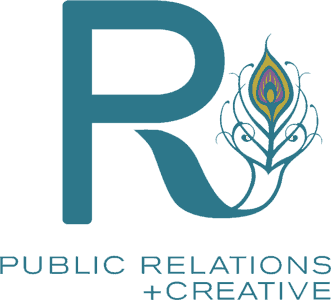Navigating the world of public relations can be daunting, especially when balancing empathy, marketing, and brand values. In this in-depth guide, we share our top five strategies for enhancing your brand’s PR and must-have components for an effective PR strategy drawing from our extensive experience working with diverse brands.
Elements of a Good PR Strategy
As a professional PR agency with over a decade of experience working with more than 50 brands in different industries, we have studied and created successful public relations campaigns extensively. If you are planning your next PR strategy, here are some elements to prioritize:
1. Show Empathy but Uphold Brand Values

You want to ensure that you communicate messages relevant to your audience’s needs and identify with their struggle but maintain authenticity at all times. There must be a message of truth, which builds connection more than fancy press releases or positioning statements.
2. Have a Long-Term Strategy and Measurable Goals
The fastest way to fail in PR is to dive in without clear goals or a plan. A clearly defined PR goal specifies what to focus on, while your brand PR strategy breaks down the steps to achieve the goals and measure results. When you balance realistic goals and actionable strategy, you’re much more likely to succeed.
3. Find a Balance between Providing Value and Selling a Solution
A core goal of public relations strategy is brand awareness. However, it’s also a good tool for generating sales. But if your PR campaign over-prioritizes sales, you could lose the target audience’s attention. On the other hand, if it focuses more on value, you will build connections but might get fewer sales conversions. Therefore, it’s important to strike a balance between the two in PR activities.
Ways to Improve Your Brand’s PR
Are your PR activities performing as well as they could be? Do you need to boost the results with new ideas and strategies? Here are some good PR strategies you can adopt to improve your brand’s PR.
1. Listen to Your Customers

PR helps you connect with your target audience, and you must listen to what they are saying. Communication is a two-way activity, and listening will help you identify gaps in your strategy. You can find out what you are doing correctly, the areas to adjust, service challenges, product update requests, critical issues that affect your target audience, and many more.
Sometimes, your poor performance in PR activities isn’t an internal issue, such as a lack of expertise or tools. Rather, it’s an external issue like a lack of effective communication with the target audience. By creating a PR survey, poll, or customer interview, you can listen better to your target audience and get direct answers.
2. Adopt an Omnichannel PR Strategy
Public relations isn’t one-size-fits-all. While it might be easier to manage one channel, it might prevent you from reaching a larger audience. An omnichannel strategy is more effective as it considers all possible platforms your target audience visits for information.
For example, a company might have consumers who use Twitter only, Instagram and Twitter, Facebook only, email and forums, or traditional media like TV and magazines. Creating a PR plan that provides content and a distribution plan for each channel will help you meet your target audience where they are, thereby improving your probability for success.
3. Invest in Effective Customer Experience
Creating a press release to announce your product launch will help create awareness for your business but might not be as effective as the buzz from word-of-mouth marketing. How can you trigger word-of-mouth advertising without paying influencers? The answer is simple: deliver a quality customer experience.
Wowing the customer in each brand experience will result in positive reviews, increased word-of-mouth recommendations, and help you generate customer success stories quickly. All of these assets will help boost your brand strategy at a lower cost than when you first convince the target audience of your credibility before connecting with them.
4. Invest in Data-Driven Public Relations Strategy
As mentioned earlier, measurable goals and realistic plans are essential for good PR performance. However, you won’t drive real impact if you don’t track these PR goals. Fortunately, there are many PR tools that you can use to measure performance which will guide the launch of future PR campaigns. For example, you can use Google Analytics to track audience behavior across multiple platforms and BuzzSumo for brand mentions and identifying trending topics for your PR campaign. Data, combined with human expertise, will give you a competitive edge and help you make better PR strategy decisions.
5. Hire PR Professionals

Public relations involves many moving parts that require careful implementation, and hiring PR professionals, whether in-house or agency, gives you the confidence to deploy effective strategies. You cannot gamble with expertise if you want to get better results. Although hiring a result-driven PR professional might be expensive, the long-term benefits outweigh the budget strain and should always be a top priority.
Next Steps to Improve Your Brand’s PR
Public perception of a brand goes a long way to determining business success. Therefore, you need a combination of tools, expertise, data, and strategies to get to maintain a positive perception. You must also ensure that your PR focuses on the target audience, maintains your brand values, and creates a balance between value and sales. You must include all of these elements to build a connection with your audience.
At RPR, we engage in detailed customer research to identify critical issues, understand customer behavior and create effective PR strategies that integrate crisis management and brand growth.
Are you ready to improve your brand’s PR? Schedule a free consultation with us today.
